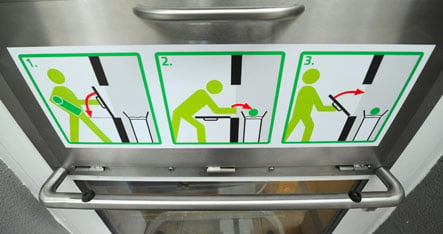Authorities have counted the same number of baby killings – an average of 25 per year – though there was a slight increase in 2007, German Ethics Council member Ulrike Riedel said in Berlin during the organization’s monthly plenary meeting.
“We can’t assume that baby hatches hinder infanticide,” she said.
Germany has some 80 baby hatches located at hospitals nationwide, and 130 places where mothers can give birth anonymously, the Ethics Council said. But the number of babies given up each year varies depending on the source.
The federal government reported that since 200, some 143 babies were left in baby hatches and 88 babies given up after anonymous births. But adoption expert Christine Swientek estimated that some 550 babies have been left in baby hatches and 600 left in anonymous birth clinics.
Experts at the meeting did agree that counseling for young women who are considering anonymous birth has been successful. Five of eleven mothers chose not to give up their babies after counseling sessions, Monika Klein, head of a Cologne Catholic women’s social service said during the meeting.
Babyklappe, as they are called in German, have been around for hundreds of years – the first known hatch was provided at the Vatican in the 12th Century. In Germany, mothers can place their infants in the hatch, where they find an envelope that explains their legal rights. An alarm then rings inside the hospital several minutes later, giving the mother ample time to slip away and alerting staff that there is a baby in need of care.



 Please whitelist us to continue reading.
Please whitelist us to continue reading.